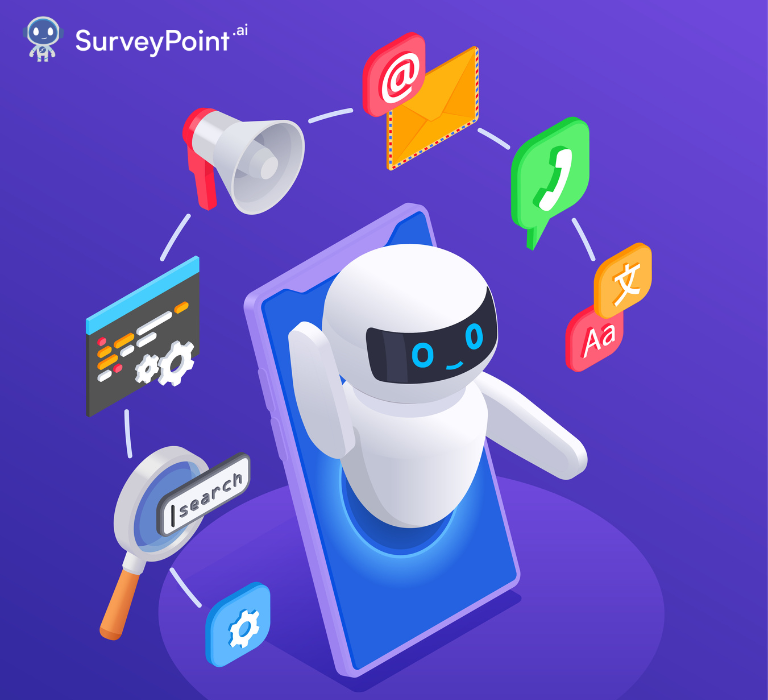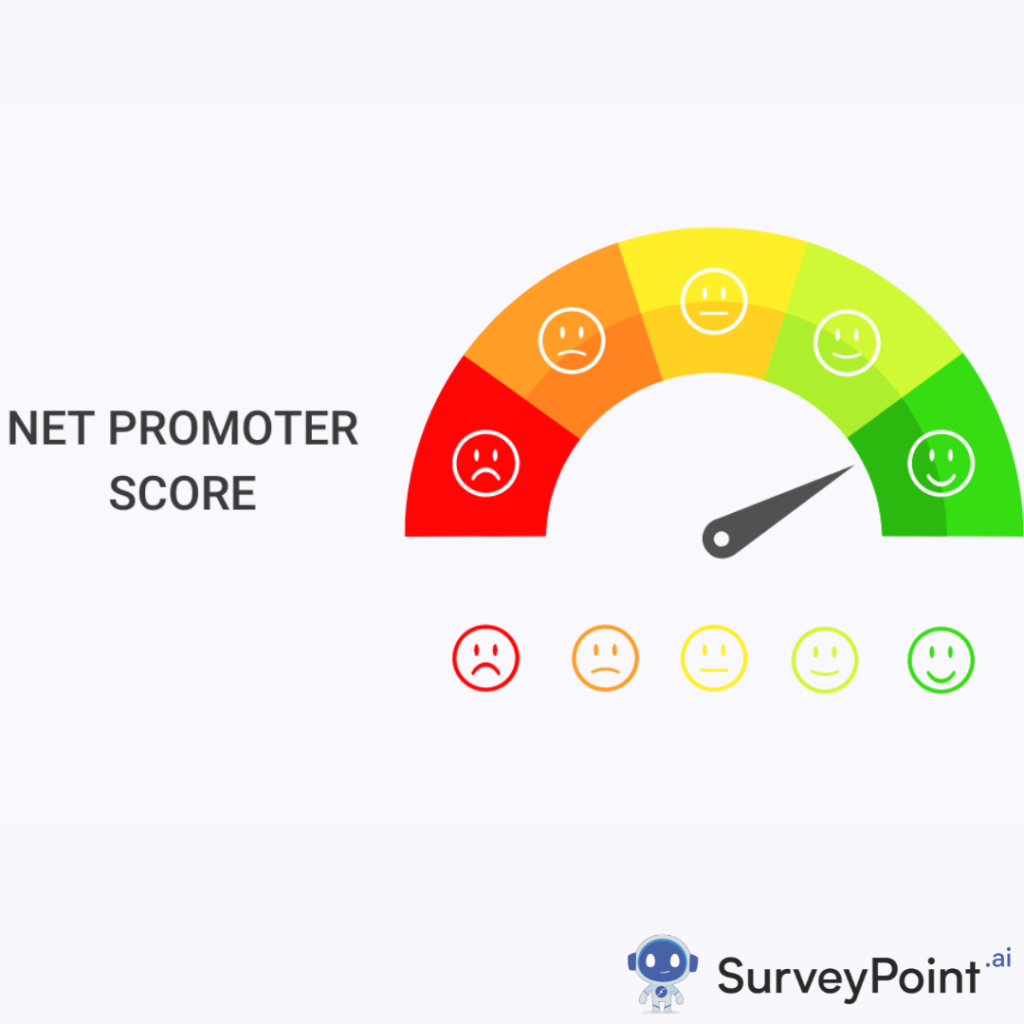
Scientists and tech experts have been trying to make machines as intelligent and powerful as the human brain for a long time. Conversational AIs has made this possible by making a smart system that understands human language. This has resulted in businesses all over the world lining up to use it.
This article will allow you to learn more about Conversational AIs as a field. We’ll talk more about conversational AIs, their pros and cons, and the best platforms to use per the user’s needs.
What is Conversational AIs?
Conversational AI uses natural language processing (NLP) and speech recognition technologies to make it possible for computers, smartphones, and other devices to communicate like humans. They create a natural and smooth way for the user to interact with the AI.
Conversational AIs are also called Chatbots. This technology is used in customer service, chatbots, and virtual assistants. There are mainly 2 types of conversational AI systems:
- Rule-based systems use a set of rules and scripts preset to respond to the user’s actions.
- Self-learning systems are also known as AI-powered systems. They use machine learning algorithms to understand human language and conversation patterns better.
Siri from Apple, Alexa from Amazon, and Google Assistant are well-known virtual assistants that use conversational AI. They understand and respond to user requests, like setting reminders, giving weather updates, or playing music.
Applications of Conversational AIs
Conversational AI is likely to become more valuable as technology keeps getting better. It will lead to new and innovative uses in many different fields. Organizations can use conversational AI in a lot of various areas, such as:
- Customer service. They are used to handle customer service requests and answer common questions quickly and easily.
- Sales and marketing. Chatbots are used to interact with potential customers, suggest products, and help make sales.
- E-commerce. Websites can add them to e-commerce platforms to help recommend products, track orders, and help with customer service.
- Healthcare. Chatbots can tell you about health problems, give virtual consultations, and help you set up appointments.
- Education. It can be used to give students a personalized way to learn. It can help learners with their homework and tests and give them access to resources.
- Financial Services. Chatbots can help customers plan their finances. It tells them about investment opportunities and allows them to manage their accounts.
- Transportation. They are used to give real-time information about flight and transportation schedules. It also helps with booking and ticketing and provides information about different routes.
- Entertainment. Chatbots can be used for fun, like as virtual assistants, for games, and to answer trivia questions.
Advantages of Conversational AIs
Conversational AI is suitable for both businesses and customers in many ways. Due to this, it is becoming an increasingly important technology for companies to adopt and use. Conversational AI has many benefits, such as:
- Improved efficiency. Conversational AI can automate repetitive tasks, like answering FAQs. This gives people more time to work on more complicated and valuable lessons.
- Cost savings. By automating customer service and other tasks, companies can cut labor costs and improve operational efficiency.
- 24/7 availability. Chatbots can work around the clock to help customers. This can cut down on the need for human involvement.
- Language support. Conversational AI can work with more than one language. This makes them useful for businesses that operate in more than one region and serve a wide range of customers.
- Improved customer experience. By using AI, companies can help customers right away. It can help solve customer problems faster and better. It improves the whole customer experience.
- Personalization. Conversational AI systems can gather and analyze much information about what customers want. It makes it possible to talk to customers in a more personal and targeted way.
- Greater accessibility. Conversational AI can make it easier for people with disabilities to use technology. It can also help people who have trouble using interfaces like touch screens or keyboards.
Disadvantages of Conversational AIs
To ensure that technology is used effectively and morally, knowing what could go wrong is essential. Conversational AI also has several problems, such as:
- Lack of empathy. Conversational AI systems can’t understand or respond to how people feel. It makes it difficult for them to deal with difficult or sensitive customer issues.
- Limited understanding. Chatbots have limited knowledge of human language and can have trouble with sarcasm and other complexities of human conversation.
- Concerns about privacy and safety. Conversational AI gathers and stores a lot of sensitive information about customers. This raises privacy and safety concerns.
- Dependency on technology. Conversational AI relies on technology, which can break or stop working. It could make customers angry and hurt productivity.
- Possibility for bias. People can train AI systems with biased data. This can make them treat some customer groups unfairly or unequally.
- High price. Conversational AI systems can be expensive to build and keep up. It takes a lot of money to set up, which makes it hard for small businesses to use the technology.
- Need for constant improvement. AI systems must be constantly updated and improved to keep working well with customer needs and technology changes.
You Must Read: All the Buzz about ChatGPT: A Revolutionary AI Tool
10 Best Conversational AI Platforms
Chatbot platforms help organizations build, deploy, and manage chatbots. As chatbots become more popular, there are now many platforms on the market, each with features and abilities. Some of the best platforms for chatbots that you can use right now:
- Dialogflow (Google Cloud). Dialogflow by Google lets companies build chatbots that can have conversations. It works with many languages and can connect to popular messaging apps like Facebook Messenger, Telegram, and Slack.
Dialogflow is a free AI platform with tools and resources that can be used to build chatbots, voice assistants, and other apps. The platform uses NLP to understand its users. It also lets you use Google Assistant and other Google services with it.
Google’s Dialogflow lets developers build websites, mobile apps, and messaging platforms with conversational interfaces. It is known for how well it can understand natural language. It can handle complicated conversations.
- Microsoft’s Bot Framework. Microsoft Bot Framework is another highly rated chatbot platform that lets businesses build and deploy chatbots for websites, mobile apps, and messaging platforms. Skype, Slack, and Microsoft Teams are some of its well-known clients. The architecture of the platform is both flexible and scalable.
The Bot Framework is known for how easy it is to use and how well it can handle difficult conversations. It gives you access to many cognitive services, such as (NLP) and computer vision.
- Amazon Lex. It is a platform that helps developers build conversational interfaces using deep learning algorithms. Amazon Lex can handle complex conversations. It is well-known because it works with Amazon Web Services (AWS).
Amazon Lex bot can be built to improve the efficiency of a company’s operations. It can make the contact center more productive and automate tasks. It can grow to handle high traffic. Since it is a fully managed service, it automatically scales itself. Users don’t have to worry about managing the infrastructure.
- Tars. Tars is a chatbot platform that allows businesses to build and manage chatbots for multiple channels. WhatsApp, Facebook Messenger, and SMS use it. The platform has a drag-and-drop interface that is easy to use. It gives you access to various integrations and tools, such as analytics, A/B testing, and visualizing data.
Tars is a free AI chatbot with a variety of templates and tools for making chatbots. This makes it easy to use for people who don’t know how to code.
- IBM Watson Assistant. This platform lets you talk to applications and services using natural language. Watson Assistant is known for its high-level NLP skills. It can handle complicated conversations.
Watson works with many languages and lets you connect to popular messaging apps like Facebook Messenger and Slack. The platform allows companies to build, deploy, and manage bots that make customers more loyal to their brands and improve their experiences across all channels.
- ManyChat. ManyChat is a platform for chatbots that lets companies make chatbots for Facebook Messenger. The platform has a number of features, such as automated messages, lead generation, and e-commerce integrations. It also gives users access to several analytics and reporting tools.
The platform lets users add chatbots to their websites through website integration. Manychat has templates and tools for making chatbots and even works for people who can’t code.
- MobileMonkey. MobileMonkey is a chatbot platform that lets businesses build chatbots for Facebook Messenger, WhatsApp, and SMS. The forum has many features, such as automated messages, lead generation, and e-commerce integrations. It gives you access to a wide range of tools for analytics and reporting.
MobileMonkey has a variety of chatbot-building templates and tools. It also lets users add chatbots to their websites through website integration.
- Botpress. Botpress is an open-source chatbot platform that lets businesses build and deploy chatbots for multiple platforms. Facebook Messenger, Slack, and Telegram all use it. The platform has a lot of features, like natural language processing and machine learning. It gives you access to many tools and integrations, such as analytics and reporting.
- Drift. Drift is a platform for building chatbots that businesses can use on their websites and apps. The platform has various features, like customer support and integrations for e-commerce. The platform has a free and paid plan with more features that cost money.
- Chatfuel. Chatfuel lets companies make chatbots for Facebook Messenger. Chatfuel enables you to add chatbots to your website and gives you a number of templates and tools to help you build them.
There are many features on the platform, such as automated messages. It also lets you use several tools for analytics and reporting.
10 Best AI Chatbot Free
Several free AI chatbots available offer a range of capabilities and features. Some of the best free AI chatbots are:
- Mitsuku. Mitsuku is a highly advanced AI chatbot that offers free conversations to users. The chatbot has won several awards for its natural language processing and ability to carry out engaging conversations.
- SimSimi. SimSimi is a free AI chatbot designed for casual conversations and entertainment. The chatbot uses machine learning to generate responses to user input, allowing for a wide range of conversational topics and interactions.
- BotStar. BotStar is a free AI chatbot builder allowing users to create and deploy chatbots for their websites and applications. The platform offers templates and tools for building chatbots, even for those without coding experience.
- Pandorabots. It is a free AI chatbot platform allowing users to create and deploy chatbots for various applications, including customer service, entertainment, and education.
- OpenAI. It is a free AI platform that provides access to OpenAI’s cutting-edge language models, including the popular GPT-3 language model, for natural language processing and text generation.
- ManyChat
- Tars
- Chatfuel
- MobileMonkey
- Dialogflow
The Best Chatbot for Websites
Some of the best chatbots for websites are:
- Intercom. It is a customer communication platform that offers a range of tools and features for building chatbots for websites and applications. The platform provides a free trial and paid plans with advanced features.
- Tars
- ManyChat
- BotStar
- Chatfuel
- MobileMonkey
- Drift
The Best AI Chatbot as Friend
AI chatbot friends are designed to mimic human-like interactions that provide a form of social companionship through chat-based conversations. AI chatbot friends offer an exciting new way to interact with technology. It provides a form of social support and companionship.
Here are some of the best AI chatbot friends currently available:
- Woebot: Woebot is a mental health AI chatbot that uses cognitive behavioral therapy (CBT) to help users manage their emotions and mental health. Woebot operates as a virtual friend and companion. It guides users through therapeutic exercises and conversations.
Woebot can also operate in a role-playing scenario, acting as a therapist and guiding users through therapeutic exercises and conversations.
- Replika. Replika is a personal AI that learns to mimic a user’s behavior and language. It allows them to have conversations and role-play as users.
- Mitsuku. Mitsuku is a highly advanced AI chatbot designed for conversation. It has won several awards for its natural language processing and ability to carry out engaging conversations. Mitsuku is also great for role-play conversations.
- SimSimi
The Best Role-Play AI
Role-playing AI refers to AI systems designed to mimic human-like interaction and perform role-playing scenarios such as virtual assistants, customer service representatives, or other personas. Here are some of the best role-playing AI currently available:
- Ada: Ada is a virtual healthcare assistant who uses AI and NLP to provide personalized patient support. The AI operates in a role-playing scenario. It acts as a virtual nurse or doctor, helping patients manage their health conditions. It also allows people to make informed medical decisions.
- AI Dungeon: AI Dungeon is a text-based adventure game that uses AI to generate unique scenarios and storylines. Players can role-play as characters within the game. They can make decisions and engage in conversations with non-player characters (NPCs) generated by the AI.
- Replika
- Mitsuku
- Woebot
Conclusion
Conversational AI platforms are here to stay. They can be used in many different fields. They have the potential to change everything about how we use technology. On the other hand, it’s essential to keep the technology improving and evolving. We need to ensure it meets the users’ needs and expectations.
Conversational AI systems are essential for businesses that want to build and use chatbots. The best conversational AI platform out of the many available depends on the needs and wants of the user.




